Post-SSC musings: Books that helped me navigate my vacation
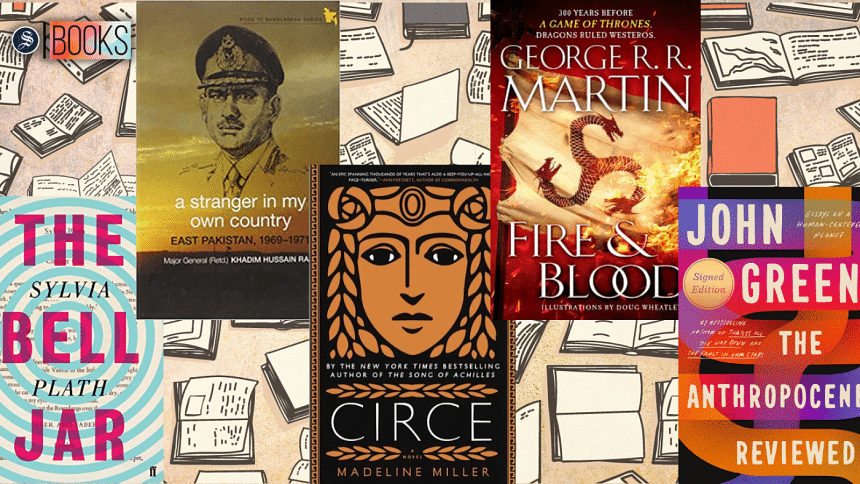
After my SSC exams ended, I felt that all my textbooks, notes, and past question papers were just staring at me. It was as if they were looking at me with the slightest bit of mockery. Despite the regret I felt for not studying them with honest academic interest, the goal of having to go through those academic books did provide me a sense of purpose. However, now that exams were over, I realised that I had to replace those mundane books with more fascinating ones.
These books that I read and had helped me navigate the post-SSC days more adventurously.
CIRCE
Madeline Miller
Little, Brown and Company (2018)
Circe, the daughter of Helios and the sorceress goddess, is famously known in Greek Mythology for turning Odysseus's crew into swine. The book Circe is written in Homeric narrative but concentrates heavily on the female gaze and how differently the tales will always be told by a man. Even though Odysseus plays a huge role in this story, the central, driving force in the story is Circe becoming her greatest self. We get to see her question what it means to be immortal, to be a nymph in a world ruled by gods, and what it means just to live. Madeline Miller's Circe is not a lovelorn, lonely heart desperate for connection in her isolation, but a multi-faceted character, with inner seams encompassing both dark and light. Her journey was unlike anything I had ever read before, and probably unlike anything I will ever read again.
THE BELL JAR
Sylvia Plath
Heinemann (1963)
Sylvia Plath's only novel The Bell Jar is packed with bleak truths, difficult topics and wry, dark humour. The story is about a woman named Esther, who moves to New York City for an internship in a Fashion Magazine, while her mental health deteriorates in the process. She describes her depression as a suffocating feeling, like that of being in a bell jar. Plath's poetic prowess shows through her writing, especially the descriptions, and we understand how excruciatingly personal her poetry was. The book is often regarded as a roman á clef since the protagonist's descent into mental illness parallels Plath's own experiences. While reading, Esther made me her accomplice in her jokes and in her secrets, and made me empathise with her plights. Despite the darkness in which this book is immersed, a sense of hope still lingers even after finishing this sombre journey. I am grateful for the story Plath shared, and for the fate she forged for her character.
A STRANGER IN MY OWN COUNTRY: EAST PAKISTAN, 1969-1971
Khadim Hussain Raja
The University Press Limited (2012)
As Khadim Hussain Raja was the second in command in then East Pakistan, a biassed yet nuanced perspective about Bangladesh's independence is shown in his writing. The nonchalant way in which he writes about "neutralising" political leaders, student hostels, teachers' residents, cultural groups, and "disarming" East Bengal Regiments, EPR, and the police, I found deplorable. Even though he criticises the Pakistani military government, he glosses over the hot mess they created while running the country and downplays the extent of their actions and impact. This book sheds light on a good amount of events and decisions at a higher level but with few references to some incidents on the streets. It left my blood boiling in rage.
FIRE AND BLOOD
George R. R. Martin
Bantam Books (2018)
With the recent release of the HBO series House of the Dragon, this is the perfect time to read Fire and Blood and get truly immersed in the story. Fire and Blood details, as the title suggests, the history of the Targaryen Kings; this first volume spans the time from the reign of Aegon the Conqueror to his sixth successor Aegon III, who sat on the Iron Throne 130 years after Aegon the Dragon and his sisters first set foot on Westerosi soil. No doubt author George Martin has an outstanding ability in fantasy world-building that draws his readers in. For the three days I spent reading the book, I forgot the outside world existed.
THE ANTHROPOCENE REVIEWED
John Green
Penguin Random House (2021)
The Anthropocene Reviewed is the latest book by John Green. This essay collection grapples with the world that the humans have inhabited for all these years, but within the context of the early days of the pandemic. That is why reading it feels like a historical document that is also very recent. Each one of the essays takes an idea from everyday life, from culture, from society, and pulls it apart and creates a venue to discuss wider social issues. John Green has a great gift for tackling complex thoughts and ideas through everyday metaphors that we can all understand.
Every one of these books took me on a compelling journey, and made me question the seemingly monotonous aspects of life. Beginning to read after so long, it has allowed me to be a part of something bigger than myself. Through reading them, I rediscovered the sense of purpose that I had lost when SSC ended.
Isra Kabir is a contributor to Daily Star Books.

 For all latest news, follow The Daily Star's Google News channel.
For all latest news, follow The Daily Star's Google News channel. 

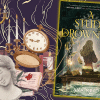

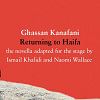
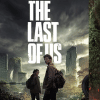

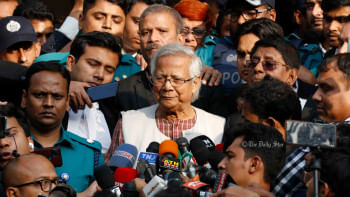

Comments